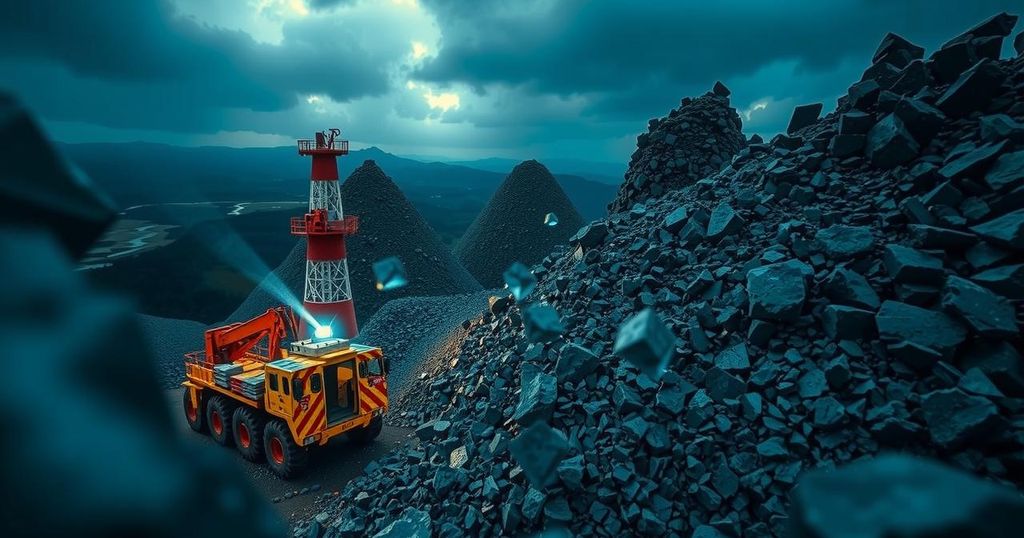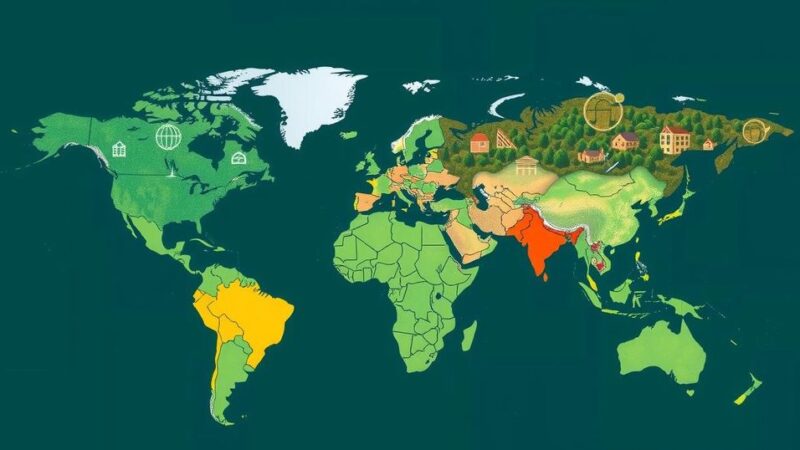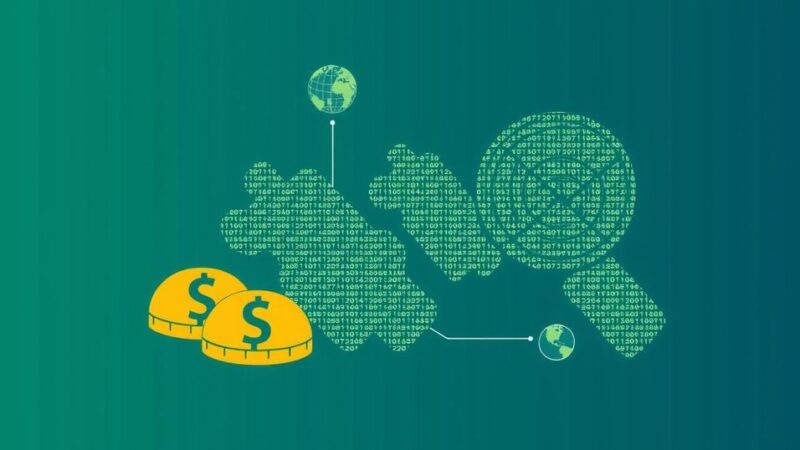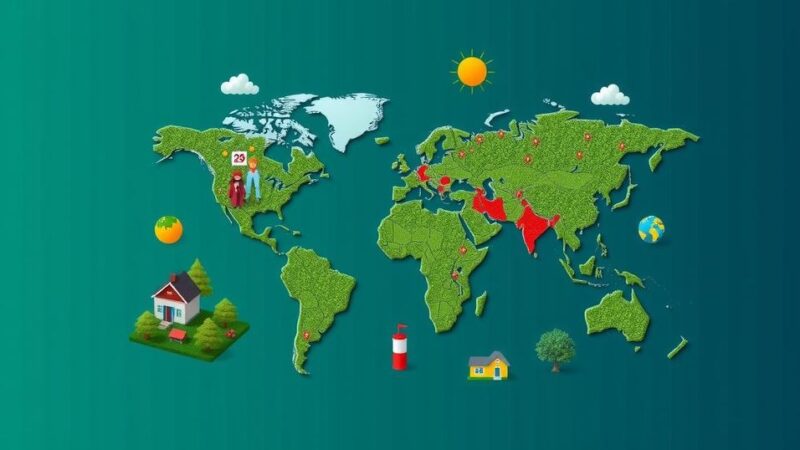The article examines the increasing dependency of Europe on cobalt sourced from the Democratic Republic of Congo (DRC) amid the continent’s efforts toward climate neutrality. While DRC provides a significant majority of global cobalt, the processing largely occurs in China, complicating Europe’s position. There is a pressing need for ethical sourcing and collaboration with Congolese officials to ensure responsible mining practices and sustainable partnerships moving forward.
The Democratic Republic of Congo (DRC) has emerged as a critical supplier of cobalt, essential for battery production in Europe’s quest for climate neutrality by 2050. With two-thirds of global cobalt sourced from the DRC, the region’s output has surged from 800 metric tons in 1994 to 98,000 metric tons in 2020. Despite this, European nations face a complex dependency on Congo as a significant portion of cobalt processing occurs in China, which controls the majority of the value-adding industries related to raw materials. European policymakers, such as Marie-Pierre Vedrenne from Renew Europe, emphasize the need for a sustainable and responsible sourcing strategy to avoid exploitation, particularly child labor, in mining operations.
The stark contrast between the working conditions in Congo’s mines and the consumption of cobalt in Europe highlights the pressing ethical and logistical challenges that the EU faces. While there are ongoing efforts to establish infrastructure projects, like the Lobito Corridor, aimed at improving access to international markets, European countries have not established significant partnerships in the area. Instead, China continues to dominate Congolese exports, with its interests overshadowing European initiatives.
Moreover, Congolese officials, led by former Minister Simon Tuma Waku, are advocating for respect of local desires and priorities in mining investments. As they strive for greater agency and profit retention from their resources, they recall the colonial history of exploitation, urging European nations to engage more respectfully rather than shape policies based solely on their interests. The article raises critical questions regarding Europe’s approach and responsibility in ensuring ethical practices in the supply chain of cobalt, a resource pivotal for its energy transition.
The current discussion surrounding cobalt mining in the Democratic Republic of Congo (DRC) stems from the global transition to sustainable energy, which significantly relies on cobalt for battery production. As the DRC supplies two-thirds of the world’s cobalt, the European Union’s dependency on this resource poses both opportunities and ethical dilemmas, particularly regarding labor practices within the mining sector. The historical context of exploitation during colonial times further complicates modern interactions between European countries and Congo, necessitating a nuanced understanding of cooperation and investment in the region’s resources.
The DRC’s cobalt boom presents both a challenge and an opportunity for Europe in its transition to a climate-neutral economy. While the continent relies heavily on Congolese cobalt, the complexities of processing dependencies, ethical mining practices, and historical injustices must be addressed. Policymakers must engage with Congolese leaders respectfully to ensure sustainable partnerships that benefit all stakeholders. Without significant reforms and direct collaboration that prioritize local communities’ needs, Europe risks perpetuating past exploitative behaviors instead of fostering equitable and sustainable development.
Original Source: www.dw.com






